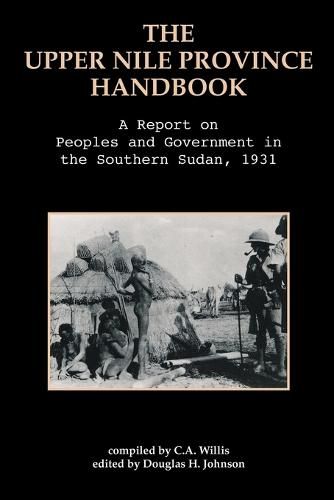Readings Newsletter
Become a Readings Member to make your shopping experience even easier.
Sign in or sign up for free!
You’re not far away from qualifying for FREE standard shipping within Australia
You’ve qualified for FREE standard shipping within Australia
The cart is loading…






This title is printed to order. This book may have been self-published. If so, we cannot guarantee the quality of the content. In the main most books will have gone through the editing process however some may not. We therefore suggest that you be aware of this before ordering this book. If in doubt check either the author or publisher’s details as we are unable to accept any returns unless they are faulty. Please contact us if you have any questions.
It also includes documentation on the origins of the Jonglei Canal, one of the most controversial environmental engineering projects in modern Africa. With many of the region’s previous governmental structures now obliterated by war, this record of the beginnings of civil administration will be of immense value to South Sudanese and the new nation of South Sudan.
Editorial Reviews
Review
“fascinating book … admirably researched’ Philip Lyon Roussel, African Affairs, July 1997
"Willis’s Handbook is … more than most, both a political and a personal document, a swan-song to defend his policies as much as an objective description of his province … a welcome addition to the historical record of the Condominium. Half a century late, as the editor notes, it provides striking commentary on events in a region even now in the throes of civil war.‘ M.W. Daly, Bulletin of the School of Oriental and African Studies Vol. 60, No. 2 '97
"It replicates, on a grand scale, many of the features of the (unpublished) District Books and handing-over notes of other colonial territories. We all owe a debt to Johnson and the British Academy for making the handbook available, not merely as a source but also as a memorial to a world whose contradictions remain even while its substance is fast being overlaid or destroyed by forces more ruthless than amateur ethnographers and ex-military administrators.’ Richard Waller, Bucknell University, Lewisburg PA, Journal of African History, Vol. 38 - 1997
About the Author
Douglas H. Johnson, Research Fellow, St Anthony’s College, Oxford.
$9.00 standard shipping within Australia
FREE standard shipping within Australia for orders over $100.00
Express & International shipping calculated at checkout
This title is printed to order. This book may have been self-published. If so, we cannot guarantee the quality of the content. In the main most books will have gone through the editing process however some may not. We therefore suggest that you be aware of this before ordering this book. If in doubt check either the author or publisher’s details as we are unable to accept any returns unless they are faulty. Please contact us if you have any questions.
It also includes documentation on the origins of the Jonglei Canal, one of the most controversial environmental engineering projects in modern Africa. With many of the region’s previous governmental structures now obliterated by war, this record of the beginnings of civil administration will be of immense value to South Sudanese and the new nation of South Sudan.
Editorial Reviews
Review
“fascinating book … admirably researched’ Philip Lyon Roussel, African Affairs, July 1997
"Willis’s Handbook is … more than most, both a political and a personal document, a swan-song to defend his policies as much as an objective description of his province … a welcome addition to the historical record of the Condominium. Half a century late, as the editor notes, it provides striking commentary on events in a region even now in the throes of civil war.‘ M.W. Daly, Bulletin of the School of Oriental and African Studies Vol. 60, No. 2 '97
"It replicates, on a grand scale, many of the features of the (unpublished) District Books and handing-over notes of other colonial territories. We all owe a debt to Johnson and the British Academy for making the handbook available, not merely as a source but also as a memorial to a world whose contradictions remain even while its substance is fast being overlaid or destroyed by forces more ruthless than amateur ethnographers and ex-military administrators.’ Richard Waller, Bucknell University, Lewisburg PA, Journal of African History, Vol. 38 - 1997
About the Author
Douglas H. Johnson, Research Fellow, St Anthony’s College, Oxford.